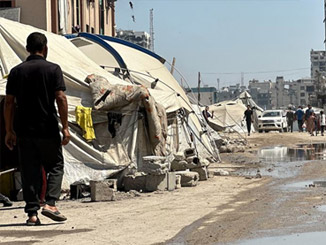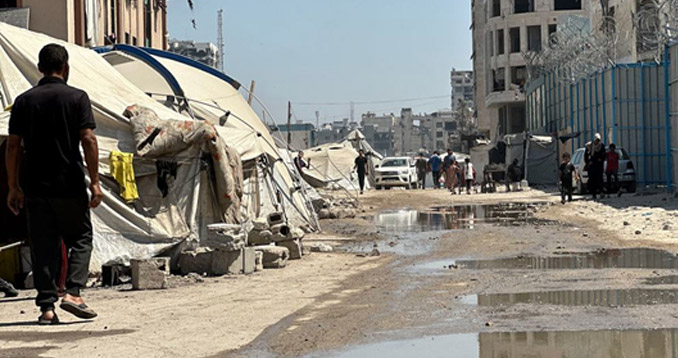

UN News As the Israeli military offensive in Gaza City intensifies, the UN and partners continue to warn against the catastrophic consequences for civilians.
Multiple strikes overnight into Friday were reported in the Jabalya Al Balad and An Nazla neighbourhoods, the UN Office for the Coordination of Humanitarian Affairs said.
As a result, around 900 people reportedly fled towards the Sheikh Radwan neighbourhood and western Gaza City.
The UN and partners again reminded parties to the conflict of their obligation to protect civilians, in line with international law, including humanitarian workers and people who cannot or choose not to move.
“Those fleeing must be allowed to do so safely. They must also be allowed to return if they wish to do so, as the situation allows,” OCHA said.
The agency underscored the need to ensure that people have access to aid and basic services, whether they leave or stay.
Supplies also must be allowed to enter the Gaza Strip through all available crossings and corridors, and humanitarians must have safe, predictable and sustained access to deliver aid at scale.
Meanwhile, as strikes continue to intensify across the enclave, casualties are flooding hospital emergency departments.
Humanitarians warned that the expansion of military operations would further cripple the collapsing healthcare system.
Nearly half of all hospitals and field hospitals are located in Gaza City, accounting for some 40 per cent of bed capacity in the entire enclave. Additionally, many medical facilities in the south are operating several times over their bedspace capacity.
Humanitarians stressed that access to healthcare must be immediately restored to avert more preventable deaths.
Sudan: UN rights office horrified by recent killings in El Fasher
Recent brutal attacks by the paramilitary Rapid Support Forces (RSF) in Sudan have left at least 89 people dead in North Darfur state, the UN human rights office said on Friday
The RSF have been battling the Sudanese Armed Forces (SAF) for control of the country for more than two years.
OHCHR said RSF attacks on the besieged North Darfur capital El Fasher and the adjoining Abu Shouk camp for displaced people resulted in the killing of at least 89 civilians, though the actual number could be higher.
The attacks took place over a 10-day period ending on 20 August.
At least 32 civilians were killed in attacks between 16 and 20 August, while at least 57 were killed in previous attacks on 11 August.
OHCHR was particularly horrified that 16 of the most recent killings appear to have been summary executions, Spokesman Jeremy Laurence told journalists in Geneva.
“Most of the victims were killed in Abu Shouk camp and belonged to the African Zaghawa tribe, according to information gathered by our Office,” he said.
“In another case in the El Fasher area, a victim was asked which tribe he belonged to. He was killed after responding that he was from the African Berti tribe.”
Meanwhile, the humanitarian situation in El Fasher has reached a critical stage after more than a year of siege, and there is growing risk of famine in the city and other areas of North Darfur.
OHCHR was appalled by two separate attacks on UN humanitarian convoys in North Darfur this month and in June, saying such attacks only worsen the human rights situation for civilians.
